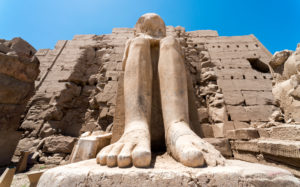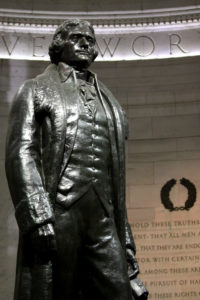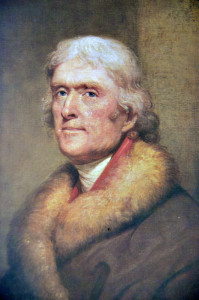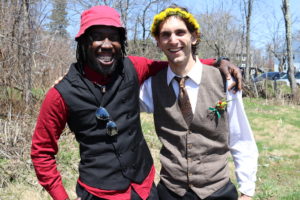Now I’ve been happy lately, Thinkin’ about the good things to come.
And I believe it could be. Something good has begun.
Oh, I’ve been smiling lately, Dreaming about the world as one!
And I believe it could be. Someday it’s going to come.
‘Cause I’m on the edge of darkness. There ride the Peace Train!
Oh, Peace Train take this country. Come take me home again!
– Yusuf Islam (Cat Stevens), from “Peace Train” (1971)
 If you had found a way to transform humankind for the better in barely a heartbeat of time, what would you do? If you could make every person on every street in every nation in the Western world feel spontaneously less selfish and more loving? More compassionate and kind? If you had a way to actually accomplish the transformation in each human heart that religions over all the earth and throughout human history have been trying to achieve, although without much success?
If you had found a way to transform humankind for the better in barely a heartbeat of time, what would you do? If you could make every person on every street in every nation in the Western world feel spontaneously less selfish and more loving? More compassionate and kind? If you had a way to actually accomplish the transformation in each human heart that religions over all the earth and throughout human history have been trying to achieve, although without much success?
We are just now coming to realize that immortality may be that magic bullet. And for my part, slow learner that I am, it is only now that I really am able to see how important this awakening is! When I first began to speak and write about the afterlife, I was vaguely worried that if we were supposed to know that we survive our deaths, then for certain we would already know it. I was still enough of a Christian that my instinct then was to follow the herd. Perhaps we were supposed to be ignorant of our true nature and our destiny, to keep us focused on our lessons here? In the summer of 2010, I became so obsessed with the notion that I might be committing a cosmic crime in publishing The Fun of Dying that I did in fact pray fervently that if that book should not be published, then God could please take me in my sleep. But God didn’t take me. That fact surprised me at the time.
Instead, over the intervening decade I have been pulled and prompted to do more. A podcast, starting in 2013. Putting on annual afterlife conferences with Craig Hogan, beginning in 2014. Channeling Liberating Jesus in 2015, which required that my beautiful Thomas become an active part of my daytime life. He assured me that I was following a plan, and that plan was well on course. I had a role to play, but no worries, my child: it’s going to be a tiny role. We wrote more books, but to my dismay he wouldn’t let my favorite of them be published. He told me it was all about timing. Although of course, my actually knowing the plan or any details of how the timing worked would have been information far above my pay grade!
 And then, about five years ago, Thomas put into my mind the thought that it was time for “an online afterlife university.” So I talked about it with friends in this field, but I couldn’t really envision it. And frankly, the more we talked about it, the dumber the whole thing started to seem. It would be just a more efficient way to do the annual conferences that Craig and I were already putting on, and each of those attracted just a few hundred people. So, what was the point of going online with that?
And then, about five years ago, Thomas put into my mind the thought that it was time for “an online afterlife university.” So I talked about it with friends in this field, but I couldn’t really envision it. And frankly, the more we talked about it, the dumber the whole thing started to seem. It would be just a more efficient way to do the annual conferences that Craig and I were already putting on, and each of those attracted just a few hundred people. So, what was the point of going online with that?
It is only now – I mean, literally this week – that I begin to see my Thomas’s plan. The role that I long ago signed up for is apparently starting to unfold, and pretty much everything in my life seems to have been preparation for it. Now, as we are working toward debuting Seek Reality Online, Thomas has begun to give me amazing downloads of information! I’m sure that for years we’ve been talking about this during our nightly guidance meetings, but the difference is that now he is letting me remember some of what he is saying. So I have awakened on some recent mornings with my mind full of ideas and insights that for certain didn’t come from me! Apparently, we are close enough now that Craig and I can be told what’s going on. And of course, I want to share it with you! But I can’t. Not yet. Thomas does, though, want me to tell you more clearly the reason for Seek Reality Online. And the first, essential goal of this project.
We have found a wonderful team to create the SRO website. And they began by insisting that we must treat our new enterprise as a business, which means among other things that we’ve got to position it well against its competitors. And that has turned out to be our first stumper. After a brief period of head-scratching, we had to say, “Um. Sorry. We don’t have competitors.”
 That was an amazing fact to confront. And it wasn’t happy news for them, because a business that has no competitors at all is either trying to sell ice in Alaska – something anyone can find for free – or else they’ve come up with some weird product that no one is ever going to want. I think it wasn’t until we had delivered all our initial information, and they could see how well thought out this project is, that they even wanted to help us with it!
That was an amazing fact to confront. And it wasn’t happy news for them, because a business that has no competitors at all is either trying to sell ice in Alaska – something anyone can find for free – or else they’ve come up with some weird product that no one is ever going to want. I think it wasn’t until we had delivered all our initial information, and they could see how well thought out this project is, that they even wanted to help us with it!
And that got us thinking. Do we actually have competitors? Are we overlooking something big? And if we really don’t – and it appears that we don’t! – then how is that even possible? The answer to our question seems to be that our role is to spearhead the first maturation of the whole field of afterlife-related education.
The afterlife-education field is full of experts. Many of them have been Seek Reality guests, or they spoke at some conference that I helped to host, so I know and I often like and admire them. Every day I get multiple emails announcing that this or that well-known afterlife name is going to be part of this or that event. Even if we discount everything that deals primarily with near-death experiences, there still are wonderful consciousness experts, afterlife-history scholars, and mediums and channels, plus spiritual healers and teachers of every stripe. But all of them remain at what I think of as the gee-golly phase of afterlife education. They are experts at sharing their own kinds of proof that the afterlife is real. That was even what our conferences were all about: just providing ever-better proof of an afterlife!
But this gee-golly phase of any kind of education starts to get old after a while. Okay, so I’ve talked to my Mom through some mediums. I’ve learned about how things look in the afterlife. I’ve discovered there are tricks that I can do with my mind. But, then what? No matter how much you learn about the afterlife from experts in their various fields, you still don’t really know all that much. And you don’t know anything for certain. Even to this day, the whole field of afterlife education is in the nature of a hobbyist’s pursuit. People go to conferences (now online), and they attend online events with famous mediums, but they are collecting bits of information the way a hobbyist collects teaspoons. Or guns. Or hats. Although it’s obvious that even at this level, the spread of afterlife awareness has been useful! The proposition that we survive our deaths is becoming a lot more broadly accepted, and that is helping to lessen people’s fears. But if the afterlife really exists, and if all of us are going to end up there, then shouldn’t there be some kind of available travelogue?
 I first met Craig Hogan in the summer of 2008. He had just published Your Eternal Self, which turned out to be – like The Fun of Dying – just a first draft of what was going to become a part of that much-needed travelogue. He and I became professional friends because we shared an unusual obsession: we both felt driven to understand the afterlife as an actual place, and to figure out how it precisely fits with the place where we are now. Neither of us needed to see any further proof that the afterlife is real! But we were bored with simply teaching the proofs. So we each had set out to try to make sense of every aspect of what really is going on!
I first met Craig Hogan in the summer of 2008. He had just published Your Eternal Self, which turned out to be – like The Fun of Dying – just a first draft of what was going to become a part of that much-needed travelogue. He and I became professional friends because we shared an unusual obsession: we both felt driven to understand the afterlife as an actual place, and to figure out how it precisely fits with the place where we are now. Neither of us needed to see any further proof that the afterlife is real! But we were bored with simply teaching the proofs. So we each had set out to try to make sense of every aspect of what really is going on!
And Seek Reality Online is going to be the full-fledged afterlife travelogue that the world so desperately needs. In fifteen short videos, or in a podcast that will be just eighty minutes long, it will tell you what Craig and I have spent decades learning about how reality actually works and your own place in it. There will be a members’ section, too, where you can review evidence, watch videos, attend classes, ask questions, and network. This isn’t about giving you comforting hope. It’s a grounding in your eternal reality that can help you become as certain that your life is eternal as you ever have been sure about anything. I have heard from hundreds of Seek Reality listeners. I invite their emailed questions, so I have learned what it is that people need to know in order to lose their fear of death. And I have learned that it takes a year. Maybe two. But once those predictable questions are answered, with education and counseling the fear goes away.
 And Thomas tells us now that teaching the certainty of universal immortality is the reason for Seek Reality Online. He says its purpose is to deliver immortality on an epic scale. He even tells us who its first target audience will be, but in fact I should have realized this before he pointed it out!
And Thomas tells us now that teaching the certainty of universal immortality is the reason for Seek Reality Online. He says its purpose is to deliver immortality on an epic scale. He even tells us who its first target audience will be, but in fact I should have realized this before he pointed it out!
Craig and I were both born at the start of the baby boom that followed the Second World War. We can see now that was likely by design! For seventy years, the outsized Baby Boom generation has led every major cultural trend in the Western world, from suburbia in the fifties through the youth quake of the sixties and disco and nesting in the seventies, to the eighties and nineties go-go quest for success; and then on to the aughts, and our gradual downshifting toward a vigorous old age. There were so many of us that we treated every stage of life as something we were free to reinvent. And now, what is the next stage of life for Baby Boomers that is ripe for reinvention?
Thomas refers to us as “the gray army.” As he points out to me, when we were young, we were sure we were going to transform the world! And he tells me now that is about to happen. He says that the generation of freedom marchers, women’s liberation, and Woodstock that went on to pioneer disco balls, big hair and shoulders, and then the active senior lifestyle, now is about to pioneer immortality. Well, we’ll see. He has given us the plan that we are to follow for the next five years, and we can see that the outcome he wants is possible. And it even looks like fun! At least, it’s a more exciting way to spend our old age than senior centers and shuffleboard.
Is writing The Fun of Immortality in my future?
 I had thought that today we would be explaining why immortality might be the magic bullet that can transform the world for the better almost right away. But apparently, we’ll be talking about that next week….
I had thought that today we would be explaining why immortality might be the magic bullet that can transform the world for the better almost right away. But apparently, we’ll be talking about that next week….
Now I’ve been smiling lately, Thinkin’ about the good things to come.
And I believe it could be, Something good has begun.
Oh, Peace Train sounding louder, Glide on the Peace Train!
Come on now Peace Train!
Yes, Peace Train, holy roller! Everyone jump upon the Peace Train!
– Yusuf Islam (Cat Stevens), from “Peace Train” (1971)




























































